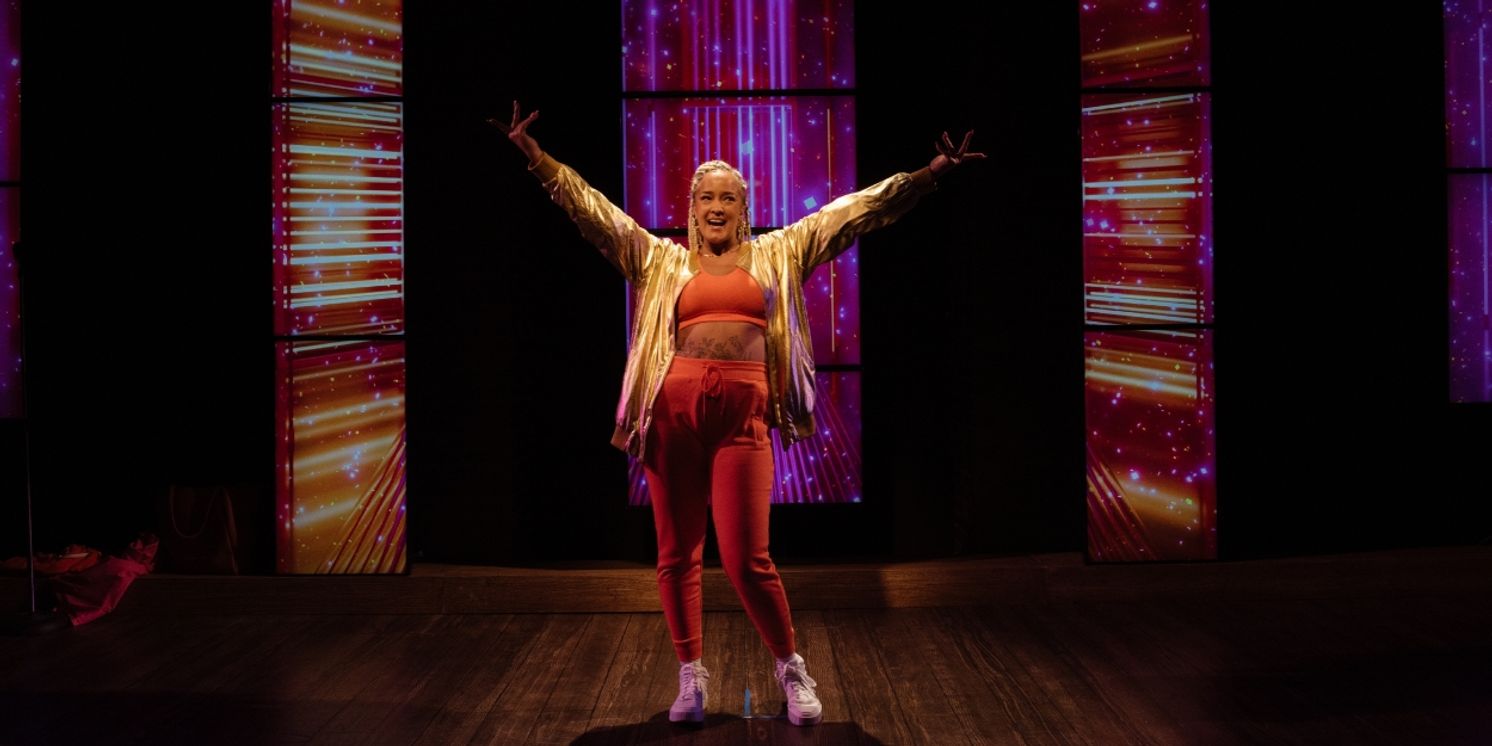Review: SHANIQUA IN ABSTRACTION at Streetcar Crowsnest
The Shaniquaverse is a complex look at misogynoir

“Just follow the lines,” intones the disembodied auditioner’s voice. “Can you say it with a bit more sass?”
The “lines” for the Shaniqua Jenkins audition don’t invite much extrapolation, consisting merely of variations on the word “Girl!”
The lines that playwright/star Bahia Watson creates around them, as her SHANIQUA IN ABSTRACTION “slips into a musing multiverse of narratives,” are much more interesting.
Directed by Sabryn Rock, behind Theatre Passe Muraille’s hit Our Place, watson’s show is an 85-minute series of sketches about the joys and frustrations of being a Black woman right here, right now. In the audition, watson’s hopeful but jaded actor says that she’d give anything to look through another’s eyes to see how she’s coming across. This begins a spiral through the Shaniquaverse, where all sorts of different yet related perspectives converge.
As Shaniqua in a wide variety of situations, watson discusses the fear of being “too much” in all of them. As one Shaniqua, she keeps coming back to a routine at the Sistahood comedy club, where things get less and less comedic before she desperately starts calling out familiar cultural touchstones to try to get her audience laughing again. As another, she sells the magic of appearing “ethnically ambiguous” with a tool kit, including a shiny, lettered jacket over her bright orange tracksuit (costumes by Des’ree Gray) that declares how appealingly mysterious you can appear.
In nuanced and varying ways, watson takes on white fragility and the dehumanizing experience of slavery; in one particularly detailed and poetic fragment, Shaniqua is a woman used as a family’s wet nurse, who reclaims some of her humanity by wearing a yellow dress outside to match the sunshine. In another, Shaniqua the office worker has a tense confrontation with a white coworker in front of a black-and-white projection of watson playing the coworker as the backdrop; this segment boasts nature documentary-like levels of suspense as the group chooses sides and tries to put the offending individual in her place.
While white fragility gets the most attention, including a sketch about the fight-ending super move that is the cry “I’m Attacked,” nobody is above criticism or comment. Waiting for her show to start, Shaniqua the talk show host quips some spicier takes to the audience about privilege and appropriation of Black culture by other nonwhite groups. Then, the cameras roll, she turns on the charm to moderate an argument about colourism between two Black women, one with lighter and one with darker skin.
Later, watson muses about misogynoir, pondering that the trend of Black men rejecting Black women stems from a desire to be seen as the racial authority in the relationship, which means not wanting to be questioned by a partner facing her own special kind of oppression.
Laura Warren’s projections, on strips of screen covering the back wall, are timed seamlessly with the monologue, shifting from talk show to comedy club to a liminal space in the cosmos. Telling us which Shaniqua we’re encountering at which moment and accompanied by Thomas Ryder Paine’s logical sound cues (including an homage to Sister, Sister), they’re an effective way to keep pace with where we are in the multiverse.
Near the show’s end, watson portrays an imprisoned woman in group therapy. This speech typifies why her performance throughout is so compelling; she’s more than capable of expressing more than one feeling simultaneously, adding to the complex dialogue with a mix of equally complex emotions. Shaniqua in group is a revelation in her delicate, heartbreaking observations. She tells us that she doesn’t like curtains; she prefers to let the light in.
That’s the impression I got from SHANIQUA IN ABSTRACTION overall; while exacting and unflinching in its commentary about how society has failed Black women, its main goal is to let the bright light of a single voice in a multiverse in.
Photo of Bahia Watson by Roya DelSol
Reader Reviews
Videos

